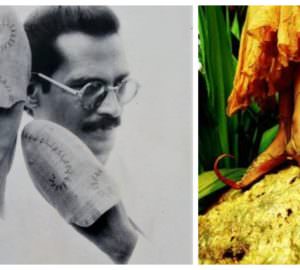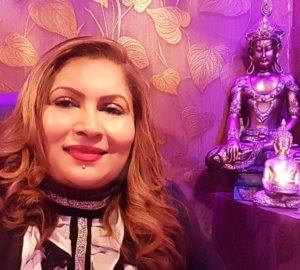In June, a report by The IndianWeb threw some startling data. It said that despite India being the third largest start-up ecosystem in the world – more than 800 start-ups join the Indian eco-system every year. On an average three to four registered every day — gender discrimination was rife. A report of `Start-up India – Momentous rise of the Indian Start-up ecosystem’ presented by Nasscom along with Zinnov revealed that, “Only 9 per cent of Indian founders or co-founders are women.” Adding to this is the recently conducted ‘Women Business Ownership’ index by Mastercard Index of Women Entrepreneurs, which has ranked the Indian subcontinent among the lowest in the 54 economies it evaluated globally.
The report further states that India, with the second largest population in the world (1.324 billion) of which 48.17% are women, scored a lowly 41.7 points on the index, which made it occupy the 49th rank among the 54 global economies that the index took into account.
We are the world’s sixth largest economy by nominal GDP, and the third largest by purchasing power parity (PPP). Yet, the 2015 Nasscom Start-up Ecosystem Report revealed that out of the $5 billion funding received by Indian start-ups in 2015, the funding received by women-led start-ups stood at a sad $0.168 billion. “This means, if there are less women in the start-up founding teams, there are even lesser women investors or women venture capitalists in India,” the report stated.
Should this reality scare the bejeezus out of us? Not if you’re steel nerved. Certainly not for Anuradha Kedia, Founder, Media entrepreneur of The Better India, who gave up her cushy corporate job to start a positive news media start-up organisation in Bangalore. An unheard of news vertical for hard nosed media houses thriving on blood, gore, gossip and paid media net. The journey, Anuradha shares with Ethel Da Costa, has been far from cosy, but steadfast she is. Read on:
ED: As a woman professional, what have been your experiences in the work force, and then stepping out to create this media platform, meeting the layman-laywoman on the street.
AK: Whether it be a man or woman, entrepreneurship is equally difficult! However, when you look at statistics, they are quite appalling – only 9% of women entrepreneurs get funded vis-a-vis 16% men! And for women, whether she is a working woman or an entrepreneur, the fact remains that she is still expected to don different hats and play multiple roles with ease. What really inspires me are the regular women we cover who face great hardships in their personal and professional lives, but still never give up, shattering stereotypes or educating others along the way.
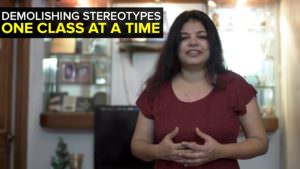
ED: There are several faces of India within India for the women of India. Which is the real reality for Indian women, and what has led to this corruption of voice, body and spirit? How do you see and feel it? How does your media voice reflect this reality?
AK: First and foremost, we need to start looking and probing beyond this stereotyping! For women in India, as well as for women across the world, securing a desirable work-life balance remains an issue. Women are expected to go out and work, and yet also be solely responsible for managing the household. If women today are matching steps with men as far as progress is concerned, men should be doing the same as far as home management is concerned. And to imagine, that even in progressive countries this still remains the reality behind the glamorous exterior of progress, should give you an idea of how damaging stereotyping can be.
ED: India is being touted as a `super-power.’ Yet, what is your experience of the social, economic, cultural, political status of women universally, vis a vis women in India. Which side of the continent do you think is more aware, evolved, contributing to Change? Why?
AK: To begin with, that is an unfair comparison, because India still is a developing country as compared to the West! With the limited opportunities and the intense suppression of women in a country as steeply guided (or should I say misguided) by patriarchy, it is incredible what Indian women have been achieving! Every day we come across and cover stories of women who have made the country proud in a global context, and against all odds. From Deepa Malik, India’s first woman to win a medal at Paralympics, to Neetu Sarkar, who went on to become an International wrestling champion from being a child bride at 13, to the women scientists at ISRO who were behind India’s most successful Mission to Mars. We are breaking the glass ceiling is every possible field! As an Indian woman, it makes me proud to share the journeys of these inspiring women!
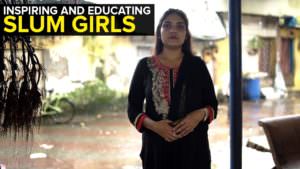
ED: Tell us that one defining moment that gave birth to The Better India
AK: To be honest, The Better India was born out of frustration with the mainstream media! When we started back in 2008, it was more of a personal project that covered stories about citizen driven initiatives in India that were driving change. At a time when all we saw in the media was negativity, we wanted to impress upon the fact that there were good things too that were happening in the country. However, it was not until later, when we started receiving positive feedback from readers across India that we realized how positive storytelling can inspire, and in turn initiate a process of change. One story in particular actually gave me the confidence to develop this from a personal project, to what is now India’s only Impact Media platform. On reading a story we’d shared about a dilapidated school for the deaf and blind in Chennai, a group of people in Bangalore raised Rs 5 lac, drove down to Chennai and physically helped rebuild the school – so that these kids who were already deprived would at least not lose out on the only opportunity to build a better future for themselves. This particular incident actually changed the narrative for me personally, because till then it was only a side-project for me, while most of my time still went in making money for those who already had enough – the bane of corporate India! It was then that I decided to invest all my time and energy to developing The Better India, because clearly what we were doing was making a better India, and there is no greater gratification than knowing that your contribution has helped better some lives!
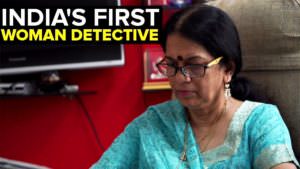
ED: How do you want to use your voice to create a better India for Indian women? How have you effectively used this voice in the past, the present, and what do you propose to implement in the future?
AK: Women and women empowerment remain some of our key focus areas. In fact, if you look within our teams, we are a women-driven organization, quite unlike most media houses in India. We might be a small team, but 75% of us are women! Even with our impact projects, like with our stories, we focus on changing the oppressive narrative that seems to have become synonymous with women. If you look at some of our past projects, we’ve helped widows of farmers who committed suicide become financially independent, former devdasis to help them break out of their cycle of oppression. With our current #FreeThePeriod campaign in Rajasthan we’re helping build a sanitary pad manufacturing unit that will be run by women for women!
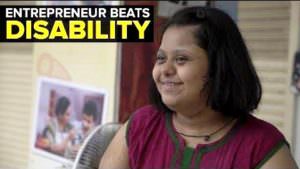
ED: What are your own challenges to stay rooted and strongly build your voice towards a positive narrative?
AK: As a media house we have brought to the mainstream this idea of Impact Journalism. All of our stories revolve around the narrative of impact, of driving change, however big or small. This however, often gets confused with happy stories. Of course, India, like any other nation, has its problems. Our stories do not insist otherwise. By sharing what are called “happy stories” we are not denying that there is a lot to be desired, both from the government and from individual citizens. What we cover are stories of individuals, just like you and me, who have initiated the cycle of change. Pegging them as merely “happy” or “positive” stories takes away from the impact they are creating, and that I feel is unfair, both to our writers who strive each day to find these stories from the nooks and corners of the country, as well as the individuals whose journeys these are!
ED: What should be the current role of media today? Just reporting or movement building? What is your philosophy?
AK: Media, I believe, is about reporting! The purpose any media house in any country, serves to fulfill is to report facts, unbiased. Movement building can of course, happen as a consequence, but as a media house our first and foremost job remains to share the story as is, without an opinion integrated into it. Movement building, if at all, should be based on the merit of the written word.
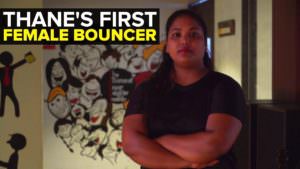
ED: Who is your own hero? What keeps you inspired, pushes you forward?
AK: The everyday heroes we cover – each individual who has taken it upon him or her to drive change in their personal capacity. They inspire me each day to do better, for my country and our citizens!

